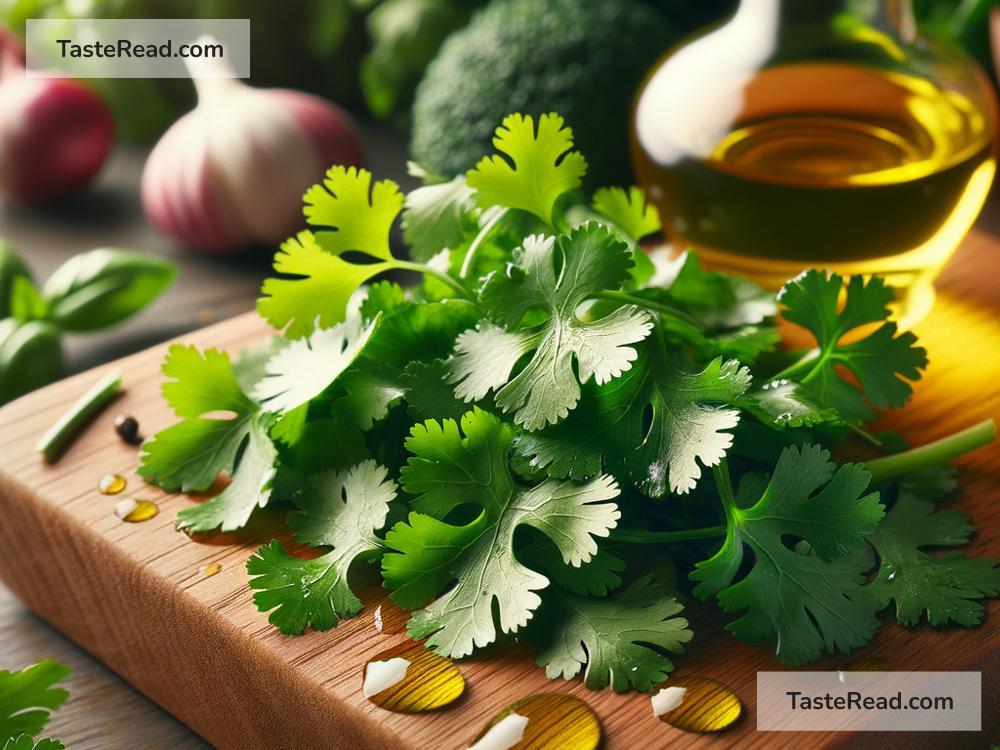The Role of Volatile Oils in the Distinct Aroma of Herbs Like Cilantro
Have you ever walked into a garden or a kitchen and been amazed by the scent of fresh herbs? That vibrant, sometimes spicy or citrusy smell is one of the reasons we love using herbs like cilantro, basil, mint, and rosemary in cooking. But have you ever wondered what makes these herbs smell the way they do? The answer lies in a fascinating group of chemical compounds called volatile oils.
In this article, we’ll explore what volatile oils are, how they create the distinct aroma of herbs like cilantro, and why they are so important – not just for cooking, but also for health, plants, and even the environment.
What Are Volatile Oils?
Volatile oils are natural, aromatic compounds found in many plants, including herbs. The word “volatile” refers to their ability to evaporate easily into the air. When you crush fresh cilantro leaves or gently rub rosemary between your fingers, you’re releasing these oils into the air, and that’s what creates the strong, delightful fragrance.
Volatile oils are also known as essential oils because they contain the “essence” of the plant’s scent and flavor. These oils are produced in tiny glands located in the leaves, stems, seeds, and sometimes even in the roots of plants. While they are known for their aromas, they also serve important roles in nature, such as helping plants attract pollinators, repel pests, and protect themselves from diseases.
The Chemical Magic Behind Cilantro’s Aroma
Now let’s take a closer look at cilantro, one of the most popular herbs in the culinary world. Cilantro is loved by many for its bright, citrusy aroma that adds a fresh zest to dishes. However, some people absolutely dislike cilantro, saying it smells and tastes like soap. Whether you love or hate it, the reason cilantro smells unique is due to its volatile oil content.
The distinct aroma of cilantro comes primarily from a compound called E-2-decenal, along with others like linalool and aldehydes. These compounds interact with scent receptors in your nose, sending signals to your brain that create the sensation of smell.
Interestingly, whether you perceive cilantro as fresh or soapy depends on your genetic makeup. Your genes influence how you experience certain compounds in cilantro’s volatile oils. This helps explain why some people enjoy its aroma, while others find it unpleasant.
Why Do Herbs Produce Volatile Oils?
It’s easy to think of volatile oils simply as the compounds responsible for an herb’s smell, but they actually serve many important purposes for the plants themselves.
-
Attracting Pollinators: Plants depend on pollinators, like bees and butterflies, to spread their pollen for reproduction. Volatile oils help by producing appealing scents to lure these insects to the flowers.
-
Repelling Pests: Some volatile oils have a strong aroma that deters pests. For example, basil and mint contain compounds that repel insects like mosquitoes. This is why some gardeners use herbs as a natural bug repellent.
-
Protecting Against Disease: Volatile oils can act as a defense system for plants by preventing fungal or bacterial infections. Their antimicrobial properties keep the plants healthy and thriving.
The Importance of Volatile Oils in Cooking
If you’re a food lover, you’ll know that herbs are indispensable in the kitchen. Volatile oils are responsible for the distinct flavor that herbs add to dishes. When you chop cilantro, basil, or mint, the oils are released, creating a burst of aroma that enhances your food. This is why fresh herbs are often preferred over dried ones – they contain higher levels of volatile oils, which deliver stronger flavors and smells.
Volatile oils also interact with our taste buds and sense of smell, creating a dynamic sensory experience. For instance, cilantro’s citrusy aroma complements spicy foods, Thai curries, and Mexican salsas perfectly, making it a staple in many cuisines.
Health Benefits of Volatile Oils
Beyond flavor, volatile oils in herbs offer numerous health benefits. Many of these oils have antimicrobial, anti-inflammatory, and antioxidant properties, which can support overall health and well-being.
For example:
– Linalool, found in cilantro and lavender, has a calming effect on the body and mind. Some even use it in aromatherapy to reduce stress.
– Menthol, found in mint, provides a cooling sensation and can soothe sore throats and headaches.
– Thymol, found in thyme, has strong antibacterial properties and is often used in natural remedies.
These health-enhancing properties make herbs not only flavorful but also functional.
How to Make the Most of Volatile Oils
To fully enjoy the aroma and benefits of volatile oils, it’s important to handle herbs correctly. Here are a few tips:
-
Use Fresh Herbs: Fresh herbs contain more volatile oils than dried ones. Keep them refrigerated to stay fresh, but don’t wait too long to use them.
-
Chop or Crush Lightly: Crushing or chopping herbs releases their volatile oils. Be gentle to avoid losing too much aroma.
-
Add Herbs at the Right Time: If cooking, add fresh herbs near the end of cooking to preserve their volatile oils and aroma.
Final Thoughts
Volatile oils truly are the secret behind the irresistible aroma and flavor of herbs like cilantro. These natural compounds not only make our food taste amazing but also play a vital role in nature and offer health benefits. So, the next time you smell the fresh zing of cilantro or the cooling scent of mint, remember that you’re experiencing the power of volatile oils!
Whether you’re cooking, gardening, or simply savoring the scent of fresh herbs, take a moment to appreciate these tiny yet powerful oils – the unsung heroes of flavorful living.


